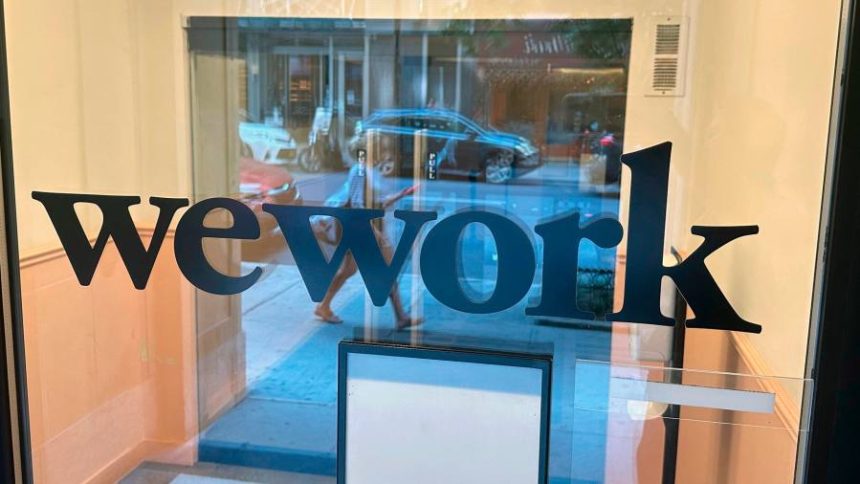Receive free WeWork updates
We’ll send you a myFT Daily Digest email rounding up the latest WeWork news every morning.
WeWork is seeking to renegotiate nearly all of its leases around the world, weeks after the SoftBank-backed office space group warned that there was “substantial doubt” about its ability to continue as a going concern.
The New York-based company’s drive to cut lease costs it described as “dramatically out of step with current market conditions” threatens a commercial real estate industry that is already suffering from the excess capacity that followed a coronavirus pandemic-driven surge in working from home.
As of June, WeWork was in 777 locations in 39 countries, with long-term lease obligations of more than $13bn, most of which come due in or after 2028.
WeWork announced the plan after telling its landlords they were “strongly advised” to join a listen-only call on Wednesday morning New York time at which it would share an important business update.
David Tolley, chief executive, told landlords that dialled in that WeWork expected to exit some “unfit and underperforming locations” but would remain in most of its buildings.
In a statement after the call, he said WeWork was “taking immediate action to permanently fix our inflexible and high-cost lease portfolio” that he described as a legacy of a “period of unsustainable hypergrowth”.
WeWork has already spent several years seeking to cut its long-term lease liabilities, which exceeded $18bn at the time Adam Neumann stepped down as chief executive after a failed initial attempt at going public in 2019.
At the same time, landlords have been looking to reduce their exposure to a company that has an outsized share of the office market in cities from New York to London and has appointed a series of bankruptcy experts in recent weeks.
“We’ve been approached by about 70 landlords since 2020 and have ended up taking over eight or nine [WeWork spaces]. The approaches are accelerating right now,” said Jamie Hodari, the chief executive of Industrious, another flexible office space company.
Hodari said his company had also been “inundated” with calls from WeWork customers since its going concern warning in August.
Real estate executives have said that many of WeWork’s New York sites are in lower-quality buildings, so its troubles may contribute to a widening divide between the most modern properties and more dated ones.
As recently as the first quarter of this year, WeWork accounted for almost a quarter of new leasing activity in New York, but several industry members have sought to play down the impact of a potential bankruptcy.
“It’s a small part of the market,” one said. The company occupies about 6.4mn sq ft in a Manhattan office market that is 414mn sq ft.
Even so, some landlords have moved to protect themselves. Last year, for example, the Spanish bank Santander took 160,000 sq ft of space at 437 Madison Ave that had previously belonged to WeWork. The rent was a bit lower, according to a person familiar with the transaction, but it let the building’s owner, Sage Realty, reduce its exposure to the co-working company.
Shares in WeWork, which ultimately gained a public listing through a merger with a blank-cheque company in 2021, have fallen by 98 per cent in the past year. Having once commanded a private market valuation of $47bn, its equity is now valued below $200mn. WeWork’s shares were 3 per cent lower at midday on Wednesday.
The lease renegotiations would have “no impact” on WeWork’s day-to-day operations, Tolley said. “Let me finish by making one thing clear,” his statement said. “WeWork is here to stay.”
Additional reporting by Akila Quinio in London
Read the full article here




